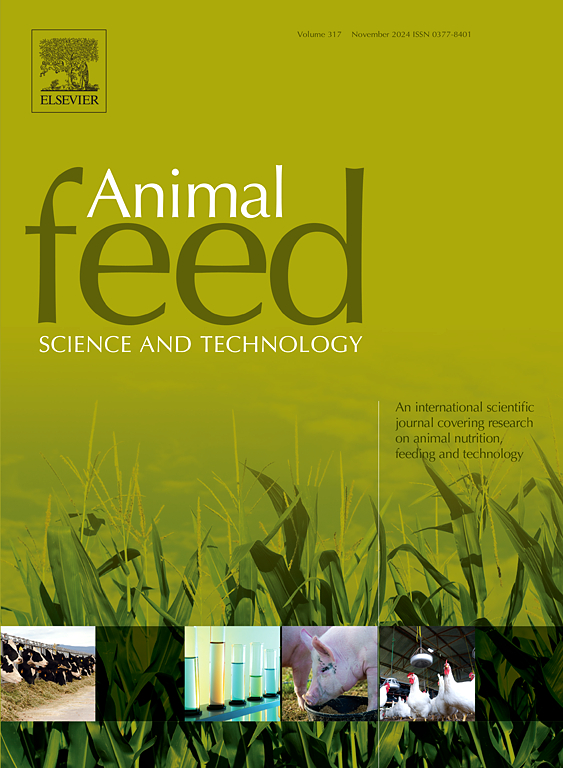评估饲料添加剂对奶牛的甲烷减排效果:基于人工智能的莫能菌素饲料添加剂预测模型的验证
IF 2.7
2区 农林科学
Q1 AGRICULTURE, DAIRY & ANIMAL SCIENCE
引用次数: 0
摘要
为了响应对可持续农业和过程优化日益增长的需求,我们的研究引入了一种满足这些需求的创新方法;利用来自14个商业奶牛场的以色列荷斯坦奶牛的瘤胃微生物组样本,我们构建了一个人工智能驱动的模型,预测饲料添加剂对肠道甲烷排放的影响。该模型使用面向网络的方法从微生物组数据集中提取模式来处理原始测序数据,并识别具有统计意义的DNA模式。所鉴定的模式可以作为生物标记物,证实它们与饲料添加剂的功效有显著的相关性。为进行模型验证,饲喂莫能菌素饲料添加剂;此外,在试验前和试验12周期间获得肠道甲烷排放量,然后将每个农场的甲烷测量值与各自的对照组进行比较,以估计ai模型预测的准确性。验证在独立队列中进行,以确保稳健性。所获得的结果表明,模型预测具有很高的准确性,14个奶牛场的肠道甲烷排放量平均减少了20% %,峰值减少了30% %。本文章由计算机程序翻译,如有差异,请以英文原文为准。

Assessing the methane-mitigating effects of feed additives on dairy cows: Validation of an AI-Based predictive model using a monensin feed additive
In response to the growing demand for sustainable agriculture and process optimization, our study introduces an innovative approach that meets these needs; utilizing rumen microbiome samples from Israeli Holstein cows across 14 commercial dairy farms, we constructed an AI-driven model that predicts the effect of feed additive on enteric methane emissions. The model extracts patterns from microbiome datasets using a network-oriented approach to process raw sequencing data and identifies statistically significant DNA patterns. The identified patterns serve as biomarkers to confirm their significant correlation with the efficacy of the feed additive. For the model validation, cows were given a monensin feed additive; in addition, enteric methane emissions were obtained before and during the 12 weeks of the trial, then in each farm the methane measurements were compared with the respective control group to estimate the accuracy of the AI-model predictions. The validation was performed on independent cohorts to ensure robustness. The results obtained indicated a high accuracy in the model predictions, achieving an average reduction of 20 % on enteric methane emissions across 14 dairy farms, with peaks of 30 % of reduction.
求助全文
通过发布文献求助,成功后即可免费获取论文全文。
去求助
来源期刊

Animal Feed Science and Technology
农林科学-奶制品与动物科学
CiteScore
6.00
自引率
6.20%
发文量
266
审稿时长
3 months
期刊介绍:
Animal Feed Science and Technology is a unique journal publishing scientific papers of international interest focusing on animal feeds and their feeding.
Papers describing research on feed for ruminants and non-ruminants, including poultry, horses, companion animals and aquatic animals, are welcome.
The journal covers the following areas:
Nutritive value of feeds (e.g., assessment, improvement)
Methods of conserving and processing feeds that affect their nutritional value
Agronomic and climatic factors influencing the nutritive value of feeds
Utilization of feeds and the improvement of such
Metabolic, production, reproduction and health responses, as well as potential environmental impacts, of diet inputs and feed technologies (e.g., feeds, feed additives, feed components, mycotoxins)
Mathematical models relating directly to animal-feed interactions
Analytical and experimental methods for feed evaluation
Environmental impacts of feed technologies in animal production.
 求助内容:
求助内容: 应助结果提醒方式:
应助结果提醒方式:


